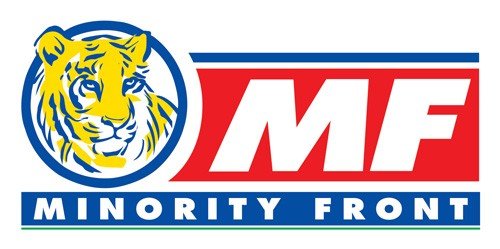The Corruption Perception Index (released yesterday) has revealed that SA (with a score of 44) has failed to move above the 50 score mark for the last 10 years, indicating serious levels of corruption. David Lewis, executive director of Corruption Watch said public trust in government has been further eroded during the Covid-19 pandemic, as blatant flouting of procurement processes has characterised the purchase of personal protective equipment, at a time when all of society needs to work together with integrity.
1. What is your response to the CPI and corruption in SA?
The Minority Front is at the forefront in parliamentary committees, especially Health and Social Development and can affirm first hand that the Corruption Perception Index of the citizens is a true reflection of the decay that has engulfed these departments and others especially during the COVID-19 pandemic. In this time, prudence is imperative with the goal of saving all lives. Announcements on the generosity of other countries and World institutions to South Africa in our time of need is great but South Africans also contributed to the President’s call to donate to the Solidarity Fund. The flouting of procurement processes has always been a norm across departments but during the Pandemic, the emergency rules led to blatant supply chain management deviations for greedy middlemen to come in. These middlemen are known and should be ashamed that innocent lives have been lost due to non-delivery of or substandard PPE’s, over-inflated pricing and delays due to devious planning. Ultimately, this corruption can cost the government more in litigation in the future.
2. Do you think the Zondo Commission assisted in rooting out some of the corruption in SA?
Yes, the Zondo Commission certainly brought to the fore the depth of the corruption webs in government but scape-goats were on the receiving end for the big fish. The cost of the commission versus the returns of ill-gotten wealth must be assessed to actually determine the impact of this and other commissions by the time we report on the National Development Plan and Sustainable Development Plan 2030, as to which goals we achieved or not.
3. What else do you think needs to be done to overcome our corruption challenges?
My take is that ‘Freedom is not free’ and every generation needs to earn its own freedom. South Africa’s economic freedom means we have to now inclusively co-operate to seriously root-out corrupt individuals.
The rule book for both government and private sector needs to be reviewed in all sectors and pledges made to abide or face consequences. Due diligence in the workplace must be done when recruiting or electing people. The King Codes of Governance must be progressively taught from our schools to Universities and in workplace orientation. Currently those found guilty of any corruption, including COVID-19 wheeling and dealing must face the might of the law. This will show government’s commitment to ‘walk the talk’ if we as people need to overcome economic uncertainty and anguish. We need to support anti-corruption movements in a refusal to tolerate injustice, corruption and oppression anymore. We have to stand up and fight for principles now, so that our citizens can live a life of honour, dignity and prosperity some 30 years after political freedom.
Hon Shameen Thakur-Rajbansi
Leader of the Minority Front
KZN Legislature MPL

